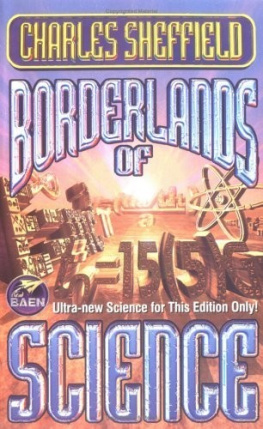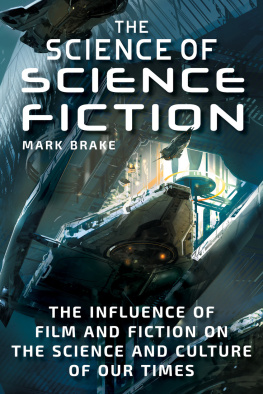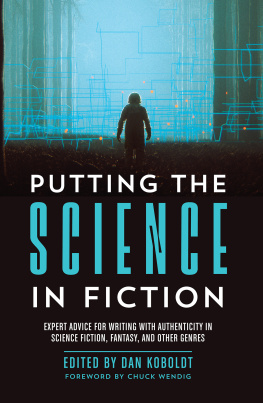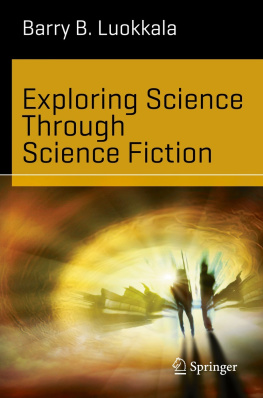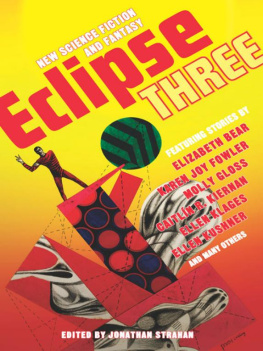Borderlands of Science
by Charles Sheffield
This is a work of fiction. All the characters and events portrayed in this book are fictional, and any resemblance to real people or incidents is purely coincidental.
Copyright (c) 1999 by Charles Sheffield; "Science Bites" copyright (c) 2000 by Charles Sheffield.
All rights reserved, including the right to reproduce this book or portions thereof in any form.
A Baen Books Original
Baen Publishing Enterprises
P.O. Box 1403
Riverdale, NY 10471
www.baen.com
ISBN: 0-671-31953-1
Cover art by Patrick Turner
First paperback printing, November 2000
Library of Congress Cataloging-in-Publication No. 99-37427
Distributed by Simon & Schuster
1230 Avenue of the Americas
New York, NY 10020
Production by Windhaven Press, Auburn, NH
Printed in the United States of America
HOW TO WRITE SCIENCE FICTION
WITH SCIENCE IN IT
"Charles Sheffield's book Borderlands of Science is an ambitious attempt to survey all of modern sciencefrom a science fiction writer's perspective.... If you are fond of the effortless, science-simply-explained style of the late Isaac Asimov's science popularizations, then the new book by Charles Sheffield was written for you. His clear and somewhat witty style is clearly reminiscent of the good doctor.... It's fun simply as an evening's entertaining reading."
Geoffrey A. Landis, physicist with the
NASA Institute of Advanced Concepts,
The Science Fiction Writers of America Bulletin
"A tour through the borderlands where today's science turns into tomorrow's science fiction, from the physicist and Nebula- and Hugo Award-winning novelist.... Bang on target, in terms of appeal... As Mr. Spock would say: fascinating."
Kirkus Reviews
"Charles Sheffield, Ph.D., renowned scientist and award-winning science fiction writer, explains in an easy-to-follow narrative about the fascinating frontiers of sciencefrom interstellar space ships to black-holes and immortality. Every libraryhigh school, college or communityought to have this book."
Eric Kotani, SF writer and astrophysicist
for the Apollo and Skylab missions
"Sheffield has long been one of the finest of our best hard SF authors. In his latest science fact collection, he joins the ranks of Asimov with his dissection of the science beneath the skin of science fiction."
Science Fiction Age
"Sheffield has a low tolerance for bad science... He follows the maxim that you can't break the rules without knowing the rules.... For either aspiring writers or curious readers, Borderlands of Science is an excellent guidepost... in understanding the universe."
The Denver Post
BAEN BOOKS by CHARLES SHEFFIELD:
Borderlands of Science
The Compleat McAndrew
Convergent Series
The Mind Pool
My Brother's Keeper
Proteus in the Underworld
Transvergence
The Spheres of Heaven (forthcoming)
THANKS
This book grew partly from a one-week series of seminars given at Dixie College, Utah, in the spring of 1998, on the subject of science and science fiction. I would like to thank all the participants in those seminars, particularly Ace Pilkington who organized and master-minded the event, for their useful analysis and comment. Before I went to Utah, I sent my material to Jim Baen asking him to look at what I had, and suggest places where the arguments seemed weak or insufficient. Much of the material had originally appeared in magazines that he published, and he offered considerable feedback. Several sections of the book owe much to our e-mail discussions. He also suggested that the material might make a useful and informative book.
Finally I would like to thank Nancy Kress and Joel Welling, who read everything that I wrote and told me when I was unintelligible because of brevity, or in danger of going overboard on technical detail. I usually took their advice, but not always, so any residual incomprehensibility is due to me alone.
Parts of this book are drawn from articles in New Destinies, Analog, and the Samsung Quarterly magazines.
INTRODUCTION
You are reading an out-of-date book. Since the frontiers of science constantly advance, today's discussion of the borderlands of science will be obsolete tomorrow.
Unfortunately, I can't tell you which parts of the book that you are holding need an immediate update. With luck, the short-term changes will be mostly in the details, and the roots of each subject covered will survive intact. The biggest changes in science usually turn out to be the most surprising, the least predicted, and the slowest to be accepted.
Around the year 1900 there were plenty of forecasts as to what the coming century might bring. They were all wrong, not because of what they included, but because of what they left out. On the abstract side, no one expected relativity, quantum theory, the expansion of the universe, holography, subatomic structure, the conversion of matter to energy, solid state physics devices (such as transistors), information theory, black holes, the molecular structure of DNA, retroviruses, genome mapping, and the theory of finite state automata. Still less did anyone expect the torrent of practical applications, with their massive social fallout, that would follow from the new theories: television and telephones in almost every home, personal computers, supersonic aircraft, humans to the Moon and observing equipment to the planets, lasers, genetic engineering, video recorders, antibiotics, CAT scans, nuclear energy plants and nuclear bombs, and artificial satellites in regular use for communications, weather, and monitoring of the Earth's surface. No one in 1900 imagined that by 2000 the automobile would be absolutely central to many people's lives, as the principal means of transportation, recreation, and even courtship. Even in 1950, not a person on the planet would have predicted the existence of hundreds of millions of computers, used daily to conduct business, play games, send and receive mail, and wander at will through a world-wide information network.
Given our track record, and the fact that changes seem to be ever faster and more confusing, a pessimist could conclude that it is now impossible to write science fiction. Prediction of future conditions is impossible; even if we get the science right, surely the consequent social changes will be nothing like we suppose or can suppose. When reality is so surprising, what place is there for imagined worlds?
I prefer to argue as an optimist. In science fiction, new science and new applications mean an endless supply of new story ideas. So long as science and technology continue to advance, we can never run out of subject matter.
This book should be regarded as a beginning, not an end. It defines the frontiers"borderlands"of today's science. Those frontiers are not fixed, but constantly expanding. As they expand, the territory just beyond them comes into view. In that territory, waiting to be picked up and used, lie hundreds and thousands of gorgeous story ideas. They are pristine ideas, never used before, because they sit on ground never before explored.
I invite you to join me in wandering the new territories, picking up the best ideas, and using them. My idea is to offer a starting place for the exploration, but certainly not an end point. For one thing this book, like any book ever written, reflects the author's personal interests and obsessions. It's not reasonable that your own favorite scenery will exactly match mine.
A couple of final points need to be made. The first is an answer to the natural question: Why, with the Internet an integral part of most people's lives, do I not direct the reader to web sites for information? One answer will be obvious to you if you happen to be reading this book at the beach, or, as I like to think, secretly in a classroom while a teacher spouts New Age non-science at you. A book provides easy access, unobtrusively and with no need of special equipment.

